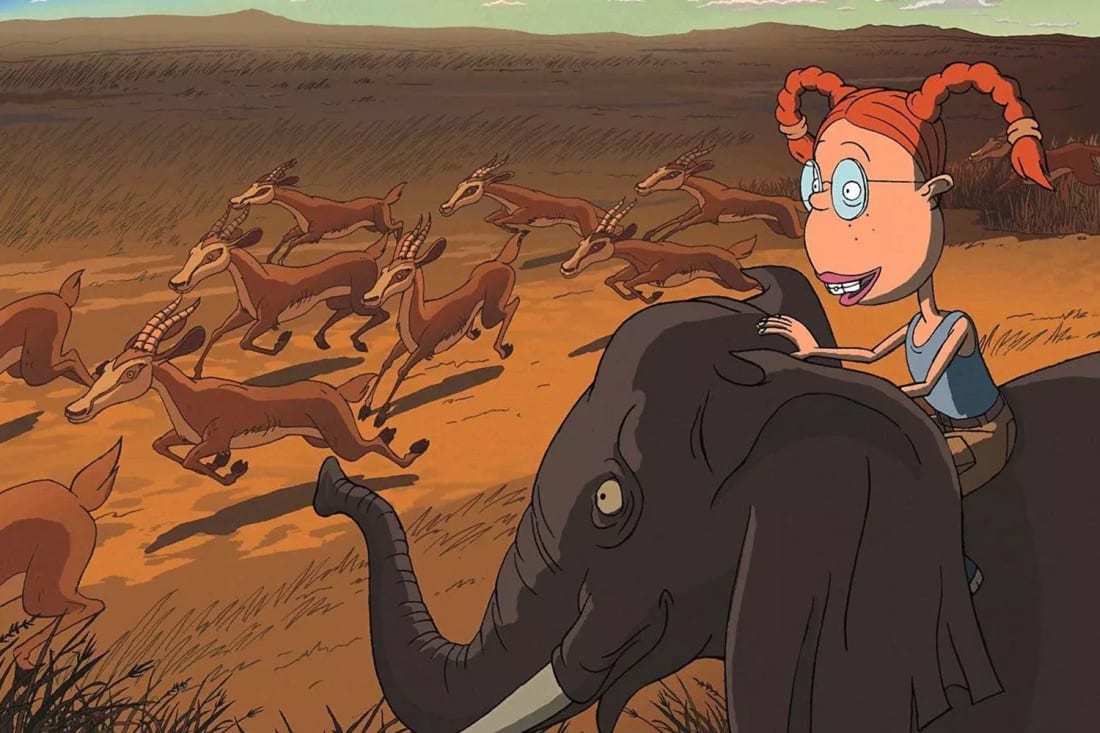Humans might be able to hibernate
Perhaps we'll have a sleepy szn one day
Perhaps we'll have a sleepy szn one day
“I’ll be hibernating all winter”, you’ve heard someone say something like this before, haven’t you? A hyperbolic, dramatic statement which essentially means: it is cold and wet and dark, I am going to watch all the television series and burn many scented candles because that will make me feel better than carrying a wind-wrecked umbrella in my cold and soaked hands. And it's nonsense, because, after all, your pal isn’t a bear, or a hedgehog, or a box turtle, are they? So how can they hibernate?
Well, it turns out, science has discovered that actually, humans might be able to literally hibernate. It seems crazy, given that practically no person you’ve ever known actually goes to sleep for entire periods of the year, but according to Sandy Martin, at the University of Colorado, humans may have the biological hardware to hibernate, and benefit from some aspects of hibernation. She researched the relationship between our phenome and genome that underpins hibernation. And it's good news for all those looking for sleepy szn, because she told New Scientist: “It’s possible we all have the genetic hardware.”
Animals tend to hibernate due to a lack of food, or because it’s very cold. Sometimes the freezing temperatures causes the lack of food, which makes it even more difficult for animals to sustain a body temperature that will allow them to survive. Humans originate from a tropical climate, so the weather wasn’t really an issue. And we’re pretty good at sourcing food as a species too – we’re omnivores and, allergies aside, we can eat quite a lot of things. This means that really we didn’t need to hibernate. However, a few hundred thousand years ago, humans moved to colder and less habitable parts of the world. Here we made fires, clothing, houses and agriculture, which again meant we didn’t need to hibernate.
But this doesn’t mean we can’t hibernate anymore. In fact, analysis of bones found at Sima de los Huesos (which means ‘the pit of bones’, spooky) near Burgos in northern Spain, has shown that a set of bones from Neanderthals and their predecessors, had ‘seasonal variation’ which leads researchers to think that our early ancestors may well have taken a sabbatical from life through the cold months, using a strategy not that dissimilar from cave bears. In fact, we've wondered about whether humans can learn to snooze from hibernating animals for a while, as the pretty video below details. This research suggests we could.
That’s crazy, but how would humans survive while hibernating?
You know how we were going on about temperature just now? That’s a large part of hibernation. Essentially, hibernation is the animal getting its core temperature really really low. This is so that the the metabolism is so slow we can survive without food for very long periods of time (think seasons rather than weeks). Also, because our core temperature is lower, the harsh elements are relatively less severe. So if humans did reduce our core temperature far enough, that’s how we'd survive.
At the moment, even a couple degree change in temperature can make a human very ill, clearly this has been a timeworn conundrum for scientists. Hold up though, there's some hope; a new study published in Nature Metabolism shows that researchers are using non-invasive ultrasound to safely pause body activity and plummet temps. But there's a catch, for now, these experiments (successful as they are!) have only been hosted on rats and mice, allegedly in a non-painful manner. It's going to be a bit before the technology graduates from our rodent friends onto bigger mammals and finally reaches the humanoid level.
You may be wondering, even if we manage to survive in extremely low temperatures, how do we escape our dependency on water? Well, we can look at those cave bears again. They don’t become dehydrated while in deep sleep because they get water by breaking down fat. Given humans may still have the genetic hardware to hibernate, we might be able to operate in a similar way. Some animals do wake up during hibernation, bears included. So we could also just open our eyes, have a bit of water, and go back to sleep, perhaps. That's not too bad is it?
Why would we want to go into hibernation?
Cost of living crisis and quiet quitting potentials aside, research currently suggests the big snooze could help us with illnesses such as strokes, heart attacks, and Alzheimer’s. Experts have previously said that surgeons ”use hypothermia during procedures in which the heart must be stopped for a prolonged period” which is akin to hibernation. Space exploration could also seriously benefit too, as it could allow us to stay in space for longer periods of time, and potentially be instrumental in letting us live there.
So how can we hibernate?
Well, we’re not sure. We just know it’s possible and probable that we used to. Vladyslav Vyazovskiy, Associate Professor of Neuroscience, University of Oxford, has written that while recent technological advances are promising “to fully understand how we could safely induce human hibernation, we will likely need to dissect key brain circuits and identify the key molecular pathways that regulate our sleep functions.”
Still, we know sleep is very very good for us, so perhaps an even bigger sleep could be too. Especially in space or wherever we might want to end up one day. Fortunately, it seems the answers could already be found within.



